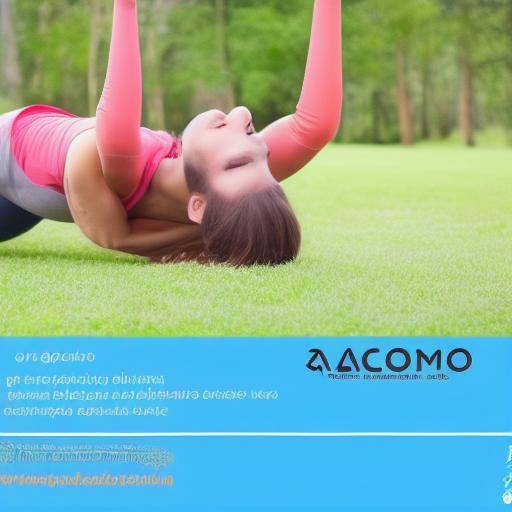
The importance of self-care in improving self-image is a fundamental issue in personal and emotional development. The relationship between self-care, self-image and personal well-being is crucial for an emotional balance and a positive perception of oneself. In this article, we will thoroughly explore the importance of self-care, its relationship with self-image and how it influences personal well-being. We will discover the reasons why self-care is essential for the development of a positive self-image and provide practical advice to foster this process.
Introduction
Self-care is a practice that encompasses all actions aimed at ensuring the physical, emotional and mental well-being of a person. Self-care is fundamental to maintain an internal balance, strengthen self-confidence and project a positive image. Self-image, for its part, refers to the subjective perception that a person has of himself, which can influence his self-esteem, interpersonal relationships and general well-being. On the other hand, personal well-being encompasses the set of elements that contribute to quality of life, emotional balance and personal satisfaction.
History and Background
The concept of self-care has roots in antiquity, where different cultures already recognized the importance of meeting personal needs to maintain a state of balance and harmony. From traditional medicine to Eastern philosophies, self-care has been an essential component in the search for integral well-being.
At present, self-care has become a central theme in the field of psychology and mental health. Numerous techniques and practices have been developed to promote self-care, such as meditation, mindfulness, balanced diet, physical exercise and emotional care.
Deep analysis
Self-care has a direct impact on self-image, as in meeting our needs and prioritizing our well-being, we strengthen the positive perception of ourselves. Taking care of our physical, emotional and spiritual health gives us the confidence and security necessary to project a solid and positive self-image.
The benefits of self-care in self-image are evident in various studies. Research has shown that people who practice self-care regularly tend to have a more positive self-image and increased emotional resistance to adverse situations. In addition, self-care can positively influence the way we perceive ourselves and our ability to face challenges.
Exhaustive examination
Self-care not only impacts self-image at the individual level, but also has an impact on the personal well-being of society as a whole. Promoting a culture of self-care and promoting the importance of a healthy self-image can contribute to a more empathic and conscious society of the importance of emotional well-being.
Comparatively, self-care and self-image are closely linked. The way we take care of ourselves directly influences the perception we have of our own image. The more we pay our self-care, the stronger our self-image will be, which translates into greater confidence and authenticity in our interactions with others.
Practical Tips and Accessible Tips
To promote positive self-image through self-care, it is essential to focus on practices that promote comprehensive health. Some practical tips include:
- Dedicate time for rest and relaxation.
- Practice activities that generate emotional well-being, such as meditation or yoga.
- Keep a balanced and healthy diet.
- Cultivate positive and enriching interpersonal relationships.
- Establish healthy limits on our responsibilities and commitments.
Conclusions and FAQs
In conclusion, self-care plays a key role in improving self-image and personal well-being. By prioritizing our needs and addressing key aspects of our lives, we can strengthen a positive perception of ourselves and cultivate a sense of personal worth that impacts on all areas of our existence.
Frequently asked questions
1. What is the relationship between self-care and self-image?
Self-care has a direct influence on self-image, as in meeting our needs and prioritizing our well-being, we strengthen the positive perception of ourselves. Self-care provides us with the confidence and security necessary to project a solid and positive self-image.
2. What impact does self-care have on personal well-being?
Self-care has a significant impact on personal well-being, as by maintaining a physical, emotional and mental balance, we promote greater quality of life, positive self-image and greater emotional resistance to adverse situations.
3. What are some self-care practices that promote positive self-image?
Some self-care practices that promote positive self-image include spending time for rest and relaxation, doing activities that generate emotional well-being, keeping a balanced diet and cultivating positive interpersonal relationships.
4. How can I incorporate self-care into my daily life?
Incorporating self-care in daily life can be achieved through small daily actions, such as taking a moment to breathe deeply, prioritizing rest, being kind to yourself and setting healthy limits on responsibilities.
5. What benefits does a positive self-image have in everyday life?
A positive self-image carries benefits such as greater self-confidence, a more positive attitude towards life, more satisfying interpersonal relationships and the ability to face challenges with greater emotional strength.
6. Why is it important to take care of our self-image?
Taking care of our self-image is crucial, as it influences our self-confidence, interpersonal relationships and general well-being. A positive self-image gives us the emotional strength and confidence needed to face everyday challenges.
In short, self-care is an essential component in cultivating a positive self-image and fostering personal well-being. By prioritizing our needs and adopting practices that promote comprehensive health, we can strengthen our perception of ourselves and enrich our quality of life.






















































